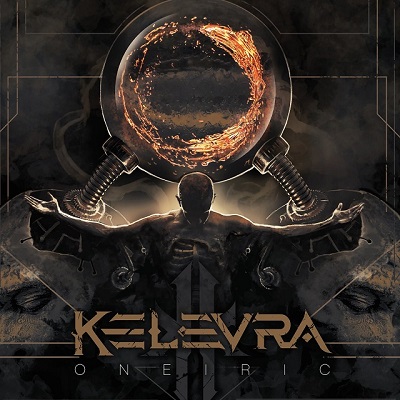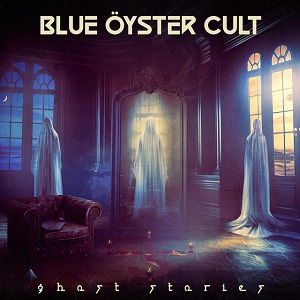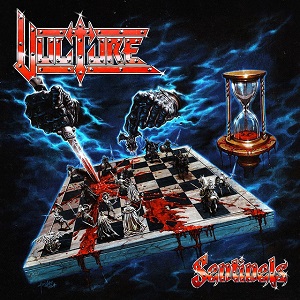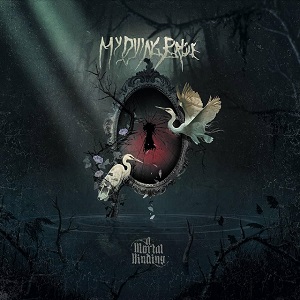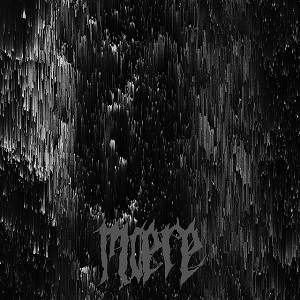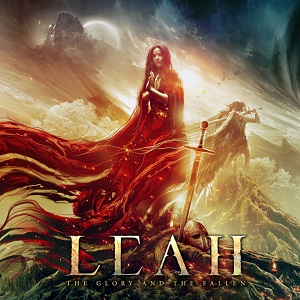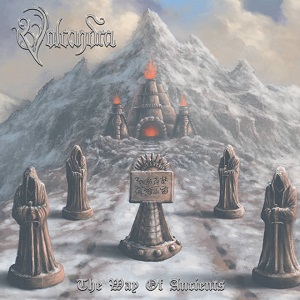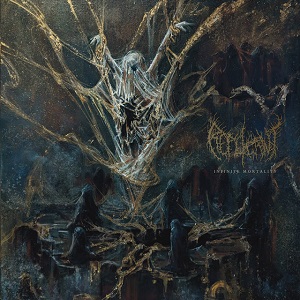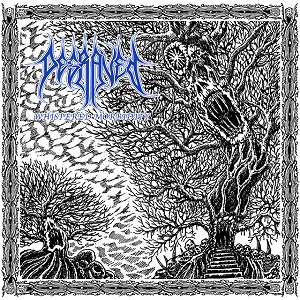Death Is Just The Beginning - NECROPOLIS RECORDS
October 7, 2011, 12 years ago
Welcome to the first installment of Death Is Just The Beginning, a series looking back at now-defunct metal record labels, trying to cut through the warm fuzzy glow of nostalgia to get the real story of what went on in the offices of the companies that sported some of those ultra-cool logos that we spent too much time staring at during years past. (Have any ideas for labels you’d like us to write about? Let us know!)

NECROPOLIS RECORDS have a reputation in the underground for releasing some excellent black/death in the early-to-mid ‘90s, including some classic albums (BURZUM, DISSECTION, WITCHERY). They also have a reputation equally as notorious for allegations of rip-offs, to the point where rumours have flown that Paul Thind, the man behind the whole operation, is currently doing time for tax evasion.
“In many ways it’s hilarious because it actually infers that I made money,” says Thind, who, we can safely report, is currently not behind bars. “The truth is that I was lucky to escape financially bleeding everything. Underground metal—especially what I was signing—is a fast way to bankruptcy. No offense to the bands or the music, but we didn’t do this for the money; we did it for the music and the passion, and our beliefs.”
Thind, who is now the CEO of a new San Francisco-based company in online and mobile games, started Necropolis in 1992 after publishing a fanzine with the same name, with the first batch of releases coming out in ‘93. The label got started with DEMILICH’s debut, an LP from ARCHGOAT, and, most notably, a 7” by cult blacksters BEHERIT. The early days, says Thind, were financed by his own money and through Necropolis’ mailorder and wholesale business.
“It was the one of the sole homes for black metal at the time due to my personal interest and alliances with many of the early cult bands from Scandinavia, particularly all the bands I would write with,” he says.Thind says that when he started Necropolis fanzine in 1990, being involved with the tape-trading scene was incredibly influential.
“I don’t think anything made as much of an impact as getting the latest killer demo from an upstart band halfway across the world,” he says. “It was a great time for the underground. Watching local bands like VON here in San Francisco open for death metal bands was eye-opening and in ‘91 and ‘92 I connected with several other tape traders. We were supporting many Scandinavian bands that were ultra satanic, and that scene just made the most impact on me at the time.”
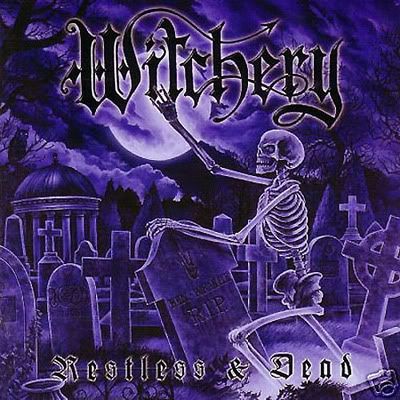
By 1993 Thind had taken those connections and signed a batch of bands he loved because he was “tired of sending demos to other labels asking them to sign my favourite bands so I just decided to do it myself.”
“The point of taking that action and the years that followed were when the music and lifestyle were aligned,” he continues. “You could see it in everything we did back then from the way I was living to the mail order to the messaging to the releases. I had many alliances in Norway and Sweden at the time. That all died with Euronymous and others who were imprisoned, but the feeling was alive for a few years after. Jon from Dissection and It of ABRUPTUM were great allies, and the scene continued for a while.”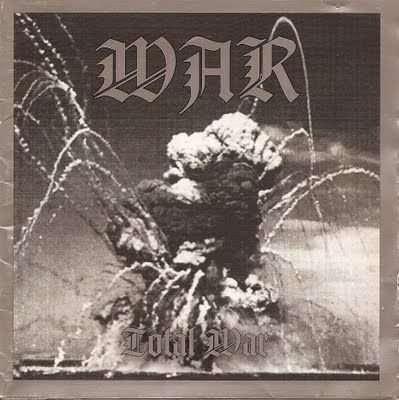
Throughout the rest of the ‘90s, the label quickly rose to prominence in the underground, releasing many classic and influential albums, as well as tons of cool under-the-radar discs. Bands like Witchery, WAR, USURPER, NIFELHEIM, DARK FUNERAL, INCANTATION, and ROTTEN SOUND all released albums on Necropolis. By 1999, Necropolis was one of metal’s big labels and had been heralded by Billboard magazine as a hot underground metal label.
But within the scene things had started to go sour, with rumours flying about Thind and the label.
“How much time do you have?” says Thind, when asked about the allegations and controversy. “There’s always two sides to every story and when you spend money on recording budgets, tours, and marketing a new band and you see that they don’t sell… well, there’s nothing much to say.”Usurper:

One way that Thind did things differently from the other metal labels at the time, and it no doubt affected sales, was he signed lots of overseas bands, or North American side projects. He points to a label like Relapse signing INCANTATION and GOREAPHOBIA from near the label’s HQ, then getting the bands out on the road to spread the good word. Necropolis, well, they had Swedish jokesters CRANIUM…
“I was signing bands that you’d never or rarely see live,” he says. “That meant no ticket sales, no merch sales, no exposure, no point for journalists to go out and interview. It’s pretty straightforward. I mean, we could get into the specifics of what you end up getting at wholesale for a compact disc and all the returns that end up coming back because there’s no tour, or no exposure. Even the big bands on major labels tour to get a solid following. That’s really it.”But Thind’s not just blaming the bands for some of Necropolis’ woes. He admits that he made some business mistakes as a young man, citing larger recording budgets, touring budgets, and record-licensing deals that “didn’t compute, saleswise.” This, tied together with the rise of music piracy, and “a bad American distributor” started to make things pretty tough for the label.
“Then there were some of the bands who used their album budgets to buy IRON MAIDEN collectibles, or drugs. That’s why some bands’ albums sounded like crap or didn’t even get released,” he says, but he’s not naming names. “I'll spare them the embarrassment of naming the three I can think of, one of which has still not released their debut on any label.”
Ah, yes, the bands… over the years there has been a few bands who have spoken out very strongly against Thind and the label—most notably and spoken most vocally, Dark Funeral—but, as it turns out, some bands also find Thind years later to say good things.
“Most bands who started their own labels contacted me years later telling me how hard it was to make any money in the scene,” he says. “Some of the bands who want to say they got ripped off should put out their own record and see if they can make a profit. I’ll guarantee you many of them would quit before the first pressing sells out—and I can guarantee you it won’t sell out. I’ve had many of them come back and tell me I must’ve either been crazy to put out their album or that they tried it and financially saw how hard it was.”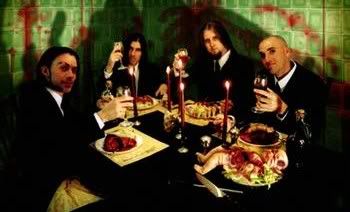
California gore-grinders IMPALED (pictured above) put out two full-lengths and two EPs on Necropolis (through the label’s Deathvomit imprint), and guitarist/vocalist Sean McGrath admits that he has “mixed feelings about it.”
“On the one hand they gave us exposure at a time when no one liked metal at all, and labels weren’t exactly beating down our door,” says McGrath. “I’m truly appreciative of that. There are a lot of people who love the stuff we did when we were on Necropolis, and who knows how that would have shaken out had we not signed with them. On the other hand, there were a lot of headaches associated with being there. Some were of our own making but the more frequent and serious were the ones where the blame lies squarely on the shoulders of the people running the label.”?When asked if Impaled ever experienced first-hand any rip-off behaviour from Thind or Necropolis, McGrath says that the band and the label certainly had problems, but there were many levels of complication to that relationship. Between members of the band working at the label, the band having issues with a “senior member of the staff” at Necropolis, and, by McGrath’s own admission, Impaled having a “pretty ‘fuck you’ attitude in general,” it’s safe to say relations were strained. Inner turmoil within the band itself complicated things even further and, by the time McGrath wrote an entire album for a different label, led to contract issues.
“But whatever part we might have had to play in the trouble we had with the label, they admitted to us that they committed the original sin of giving us a very bad contract on purpose,” he says. “Being naive about the business side of being in a band, we of course signed it because we wanted to get the ball rolling on making albums and touring. Giving us that contract was a dishonest and manipulative thing to do, and it had far-reaching consequences for us. We to this day don’t own any of the recordings we did for the now long-defunct Necropolis Records in large part because of how bad the contract was.”?
Thind denies that the label ever admitted to giving Impaled a bad contract, saying that the band received a standard contract as far as ownership of masters goes and says that it’s not the label’s job to hire legal counsel for bands to have them read their deals.
“If they are admitting to being naive, then it doesn’t mean that the label did anything underhanded,” says Thind, who adds he wishes his relationship with Impaled could have ended differently but says he’s not bitter. “We provided full tour support, merchandise, recording budget, motivated employees pushing the album at every cost, great PR/marketing, and everything else we could do. We actually supported the band stronger than many of the bands on the label.”
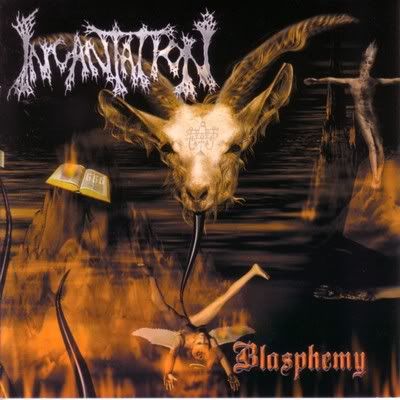
All drama and rumours aside, what finally led Thind put the label to rest in 2003 was not issues with bands; it was simply the fact that it was time to move on. Necropolis had accomplished a lot but Thind was ready to put it to rest.?
“At that point I’d been supporting and participating in the black and death metal scenes for almost 18 years, first as a fan, then as a writer for Necropolis zine and finally a record label guy. I was 30 when I walked away. It was time to do something else.”Thind, who says he “of course” still listens to metal, despite not keeping up with new bands unless it’s “something that I really feel strong about,” says that despite the great releases Necropolis put out, his life was missing other things due to the intense commitment the label required.
“Years of missing out on real money to live on, a graduate education, and other personal pursuits had to be dealt with,” he says. “I mean, I think the big thing people can't understand is that being a fan of music is one thing; being on the other side and running a business is completely different. While fans get to enjoy the show, the owner has to worry about a million spinning plates. At that point it’s like running a pizza joint; you want to eat something else after a while... Well, not really a pizza joint, maybe a car dealership... or a record store full of compact discs that nobody is buying (laughs).”“I have no regrets about anything in life,” says Thind when asked if he has any regrets about Necropolis. “It’s that whole ‘what doesn’t kill you makes you stronger’ or you have to ‘learn from experience’ kind of thing. What I know as a person who has had over eight years to think about things differently is that I think differently in business and in life. I’m not so attached and I don’t trust as many people as I used to. Necropolis was never meant to be an extension of me; it was supposed to be a business, although it was an extension of me—that was the irony. It grew with me and when I was done the axe stopped swinging.”

Anyone referencing Possessed in casual conversation in 2011 is someone who’s certainly got metal running through their veins, and despite Necropolis being six feet under and Thind being out of the metal limelight, he’s still got a metal heart, and has nothing but respect for the bands he worked with.
“Seriously, I always felt that these bands would be recognized at some point for being forward thinking,” he says. “That’s true if you look at DAWN, Nifelheim, BABYLON WHORES, Witchery, ARCKANUM, and others.”Although he’s not living in the past, Thind’s present is obviously well-informed from his time doing Necropolis, friendships formed during decades past still prominent today in varying degrees (gory water under the metal bridge: McGrath and Thind are friends on Facebook). Those forward-thinking bands have helped ensure that the legacy of Necropolis, warts and all, won’t soon be forgotten.
“In some ways,” says Thind, “it’ll always live on.”
